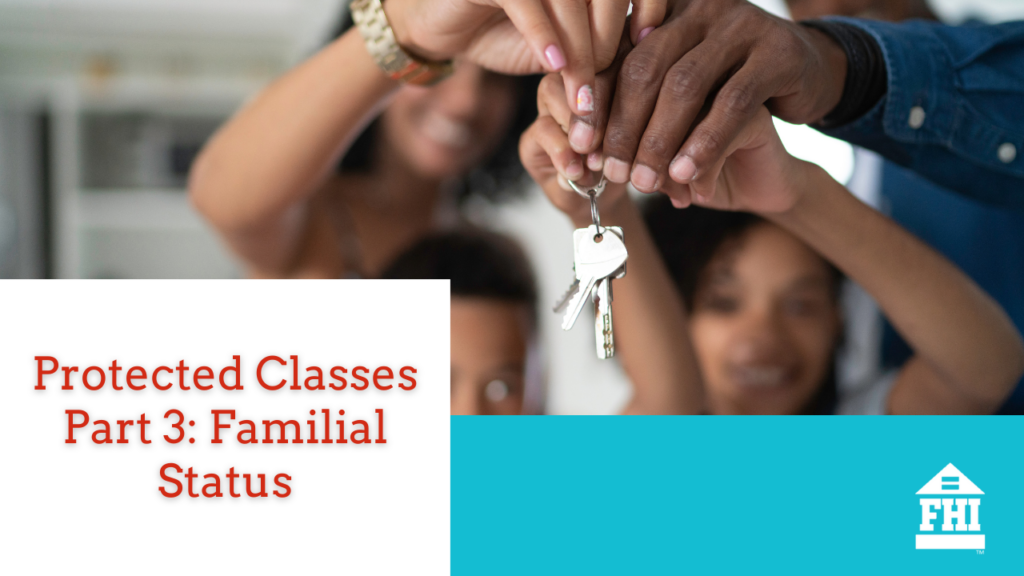Tenant complaints are part of the norm, especially when it comes to excessive noise. What happens when you get a complaint, and the resident has a newborn? Or multiple small children? How about if your newest set of residents has a surprise bundle of joy? Are your policies creating an unintentional disparate impact? Familial status is an important part of all these scenarios. In this article, we focus on this protected class and the implications it can have for your property.
Estimated reading time: 4 minutes

Table of contents
Noise Complaints From a Resident That Dislikes Children
Let’s paint the scene. You have a resident; let’s call him Mr. Heckles, who consistently complains about Mrs. Green, who lives in the unit directly below him. He’s the only other resident in the building who lodges these complaints about noise against Mrs. Green and her children. How do you go about handling this situation?
To put it plainly, addressing these complaints must follow the same procedure as any other complaint. You cannot take into consideration the resident who lodged the complaint’s feelings about children. It doesn’t matter what the cause of the noise is, whether it comes from adults or children.
As a property manager, you need to make an attempt to address the issue and reduce the disturbance. Whether it is making suggestions to the resident or issuing a lease violation if appropriate, these types of steps are necessary to ensure you follow the same steps in an investigation of a complaint. Consistency is key.
Choosing a Prospect with a Family Over One Who Does Not
There is a double negative here that can definitely create some confusion. Families with no children are not covered under the protected class of familial status. And because they’re not covered, it’s not a violation of this certain protected category. Other protected categories could be involved, such as sex or religion. So, while choosing to rent to a prospect who has children over another prospect who doesn’t isn’t necessarily a violation of the law on familial status, it doesn’t mean it’s a safe course of action. You do leave yourself open to the risk of violation of other protected categories under the Fair Housing Act.
Lease Policies with Extra Tenant Charges
Very often, you will have residents who choose to adopt a child or welcome a surprise bundle of joy. While the extra tenant charge policy is not the most common, it is definitely important to address it as there are other policies that may be similar. Policies in lease agreements that define additional rental fees per person at face value can appear to be neutral. But when it comes to enforcing said policy, you may be creating a disparate impact type of violation. Inadvertently, this policy or similar policies would charge more for families with children, specifically over families with no children.
It is understandable that the more residents in a unit, the higher the utility charges will be. This is where a utility fee is the safer option, as this is a usage-based fee, not one based on the number of people in a household, like a rental fee. Incurring or enforcing an additional rental fee is a very risky policy to include in your lease agreement.
In summary, residents who are protected under the protected category of familial status are more vulnerable to disparate impact. Whether it’s targeted noise complaints due to children or certain policies that can unintentionally target them for adding to the family, it’s your responsibility as a property manager to ensure that your policies and procedures are fair to both parties.
By keeping your lease agreements and policies fair, you can help ensure your property is compliant with fair housing. If you’re still unsure about certain policies and procedures that your property follows, check out our Basics of Fair Housing Course. It further explains familial status issues, as well as other nuances with fair housing protected categories.
You May Also Like:
